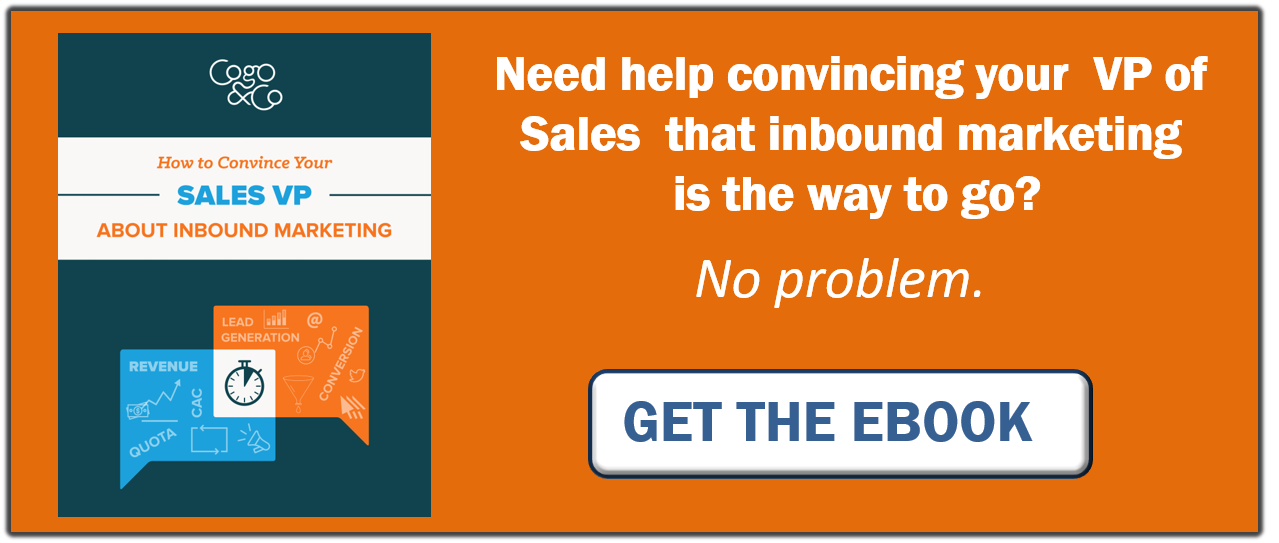
As you’re developing a marketing plan, there are a few things to keep in mind. The first: It’s 2017. Your website is now the center of your marketing universe. It is the most valuable marketing asset your company has, and your plan should incorporate it to full effect. Next, your plan needs the ability to scale if necessary. Keep your company’s goals and objectives in mind. Over the next year, where is your business headed? Think about the markets you’ll exist in, the markets you plan to enter, the products or services you already offer and the ones you’ll introduce over the next 12 months. From there, figure out what success looks like, both to you and to those running your business. Can your marketing plan scale up for success beyond that? If it can, and if you can get your marketing plan to align with your executive team’s goals, selling them on it will be a much simpler task.
Putting together a solid content marketing plan can’t be done alone, so you need to get feedback from various sources, and even your management team, if possible. Every company is structured differently, but each one should have a process for soliciting and incorporating ideas and suggestions from different areas of the company (while avoiding time-sucking meetings where nothing gets accomplished). Here are some tips and strategies for getting your marketing plan approved by the executive team.
Use Strong Analytics and Data Tools
Most executive teams like to see data and analytics to support each point you make. Use inbound marketing tools to give them enough data so they can understand your strategy. Using a combination of historical data, real-time data and future projections will give you the best chance of impressing your executive team. It may seem like overkill, but when it comes to the top management, the right data can help them make the right decisions. Some useful tools for collecting data include Google’s Test My Site tool, Website Grader, and Buzzsumo, which helps your company gain insight on the content strategies being used by competitors.
Using various inbound marketing tools could help you make your case, but you don’t want to invest in too many. Every tool affects your marketing budget, which is also a large concern for most executive teams. Be prepared to justify the importance of these tools and their cost.
Understand The Perspective of the Executive Team
You can’t have a successful content marketing campaign unless you have a basic understanding of the perspectives of your executive team:
Is their top concern about lead generation?
- Is ROI most important?
- Do they care more about the value of inbound marketing tools?
- Do they only look at the impacts the tools have on market share?
Understanding these goals can help arm you with numbers and statistics relevant to the team. Depending on how your company is structured, your executive team may have to answer to shareholders, board members or other groups of people. So while it’s your job to make your marketing plan to the executive team, it’s their job to justify it in a different way to people above them.
Anticipate Responses To Your Claims
Expect every claim you make to be challenged, even if you have data to back them up. Many times an executive team will question the validity of your claims just to see if you’ve done your research. Anticipating the questions they might ask will help prepare you for your sales and marketing pitch. Be sure to rehearse your content marketing pitch to yourself and other team members. If you make a point without having enough data to back it up, then you know you’ll need to adjust the strategy or find more supporting data.
One thing you will quickly learn about most executive teams: they don’t like to be sold on anything. Instead, if you get their opinion on important concepts, they will be more open to new ideas. So as you explain your marketing plan, ask leading questions and get their opinions on different aspects of your strategy. Just be sure you have their responses anticipated so you know how to deal with them.
Don’t Make Money The Focal Point
As mentioned, inbound marketing tools cost money, but don’t make the budget the focal point of your pitch. While you’re there to sell your marketing plan, don’t sell the low cost of a particular tool. Instead, focus on how much value a particular tool will bring to the business and the subsequent ROI. Talk about examples from recent situations you’ve experienced to build credibility and minimize the concerns about risk.
It’s the executive team’s job to determine what money needs to be spent in certain areas of the company, and it’s your job to sell the value. As long as you show innovative thinking without requiring a significant investment or increase in funding, you’ll have a much better chance of having the team agree with your plan.
Research The Competition
Any content marketing plan should have statistics about how the competition follows a similar successful plan, or how yours is different if the competition isn’t as strong. Aside from numbers and statistics, executives want to know how the company matches up to the competition.
One of your main goals when selling marketing lead generation ideas is to show how the competition is succeeding and how they are failing. But most importantly, you must demonstrate how your plan is different in order to build on the successes and reduce the failures. Knowing the attitude and opinions of your executive team before your marketing plan presentation will help you make your case. If one of their major concerns is with the competition’s activities, then you know you need to emphasize these points as much as possible.
Avoid Emphasizing Trends
Using a trend can help you sell a marketing lead generation plan; however trends change constantly, so use your research and statistics to back up how you are going to take advantage of certain trends and present a solid foundation to protect yourself if the trend fades.
Trends are definitely worth acknowledging. Knowing the hottest new strategies show that you are on top of what’s happening in the marketplace; however, making aggressive claims based on trends is usually a good way to get your plan shot down. Provide as much context as you can find surrounding any given trend. Some trends may be worth taking advantage of for the short-term, with a low-risk option of shifting directions if the trend slows down.
Build A Brand and Culture
Emphasize to your executive team how content marketing can help build your brand and develop the desired culture of your business. Marketing and branding go hand-in-hand for building your business from the inside out and vice versa. Shareholders want to see stability, and if you give your executive team a reason to believe your marketing plan creates stability, you’ll have a better shot of winning them over.
Think about building your brand and culture as a way to reach new audiences as well. The goal of any content marketing plan is to connect with your targeted audience and gain exposure outside of the targeted demographics. The more you can build your company’s brand, the more exposure it will have and the better chance the company can leverage the exposure in the future.
Keep Executives Updated
Your role may not allow you to have direct access to the executive team, but keeping your manager or higher-up in the loop throughout your planning process has many benefits. Keeping management informed of any upcoming marketing plan allows them to voluntarily provide their input along the way, so they aren’t blindsided with too much information when you present it to them. At the very least, you can get valuable feedback from them to help guide you along the way. The best case scenario is the team becomes engaged with what you’re doing, begins trusting your intuition and simply looks at the marketing plan as a formality in order to officially sign off on it.
Cogo & Co. will not only help your business develop a marketing plan, we will help you sell it to your executive team, as well. We understand the ins-and-outs of marketing lead generation and understand what most executives want to see in your plan. Before you make your pitch to the team, be sure to contact us to get some valuable insight from experts, receive critical feedback and get tips on how to make the best pitch possible.


